At its surface, Dorian Electra's "Jackpot" music video is designed for easy enjoyment, channeling the polished gloss of contemporary pop films with a track that's splashed in synths and, above all, impossibly catchy. This package is strategic, allowing the Texas-born visionary to lure in their audience and wrap them with more complex commentary on gender roles, sexuality and mainstream culture.
In the video, which Electra co-directed with longtime collaborator Weston Allen, they're shown speeding through Sin City, dancing amidst neon-lit slot machines and posing with their real life parents in full drag. Using Las Vegas as its backdrop, the visual becomes a twisted display of power, sex and ego, as Electra effortlessly shifts between hyper-masculine and hyper-feminine performance.
Wielding purposeful pop like "Jackpot" has carried Electra throughout their career, ascending from the underground queer scene to national late-night television. They've previously released "Control," an intersectional feminist anthem about reproductive justice throughout the years; then there's "2000 Years of Drag," which outlines the history of gender non-conformity, and "Clitopia," a campy, informative tribute to the female anatomy.
Watch Dorian Electra's "Jackpot," and learn more about the sex-positive, gender-fluid spectacle, below.
OUT: How does creating music allow you to explore your deeper facets of gender and sexuality?
Dorian Electra: Performing in music and video allows me to express things about my gender and identity in ways that words never could. I feel like my self and sexuality are so much about subtle body movement, facial expression, the different tones of my voice, fashion, and all these non-verbal things that might seem trivial, but actually make up the bulk of how I present myself to others and what I communicate to them.
You've described yourself as "flamboyantly masculine-feminine." Explain this more and how your work helps amplify this identity.
I feel like Liberace or Siegfried and Roy or any other flashy Las Vegas showman who has historically expressed a deep appreciation of glitter, rhinestones, and a little bit of gold. I love approaching "femininity" through a masculine lens.
As a kid, I was very resistant to wearing dresses, playing with dolls, or anything super feminine like that. I got more comfortable with it once I started doing musical theater and being cast in female roles that were like an early form of drag for me, really. In the theater dressing room was where I first learned to do makeup. I think my history with musical theater explains a lot about me and my relationship to exaggerated everything.
With flamboyant rockstars like Mick Jagger, there's something so appealing to me about a hyper-masculine sex symbol that hetero male fans are allowed to fawn over and adore like a god. It's like some weird loophole in the hetero-world, and you see the same thing in sports. I feel like both a masculine girl and feminine boy, and during my performances, my goal is to basically turn everybody in the audience gay.
You've been actively involved in the underground queer scene for quite some time. How has this community influenced your work?
I've been so inspired by seeing artists in the queer community unapologetically be themselves without trying to conform to expectations of what they or their art "should" be like. I learned so much from working with Imp Queen, Lucy Stoole, Eva Young, The Vixen, and London Jade especially on our "2000 Years of Drag" music video. That video was a Chicago queer community effort of queens, musicians, designers, artists, dancers, filmmakers coming together to make something really special. Those are the kinds of projects I end up feeling the most proud of and the ones that I feel like have a chance to make a lasting impact.
Why pop music?
I love pop music because it's fun, makes you feel good and can be accessible to almost anyone. But there are definitely a lot of tired tropes in pop music that I'm really sick of, especially when it comes to gender roles and the way artists talk about sex and love.
In all the new songs I've been working on, I like keeping the pronouns of who I'm singing about gender neutral, and I explicitly refer to myself as a boy or guy. I also take on some of the traditionally masculine roles in the narrative. There are so many songs sung by female artists where they're singing about a man and are like, "...when we're in your car," "...you drive me around," or "...you pick me up."
In "Jackpot," for example, I'm the one driving the car, singing about how I'm going to "take you out for a very nice dinner" and purchase some rather expensive "Cirque du Soleil seats, front and center." I also like taking this kind of exaggerated masculine bravado and poking fun at that too.
I feel like even subtle lyric choices that consciously subvert the norm can go a long way in helping to change pop music tropes at large.
Related | Weston Allen is Transforming Smooth Jazz Into Queer Erotica
What's the story behind "Jackpot," lyrically?
Initially, my creative partner Weston Allen suggested the title "Jackpot" out of our mutual love for Las Vegas, and shared morbid fascination with the whole twisted ethos of the place and what it symbolizes. "Hitting the jackpot" can of course mean a lot of different things like sex, money and power.
In the music video, I play this over-confident, hugely-inflated-ego masculine character. He thinks he's invincible, and is so addicted to "winning" and on being on top that he believes he can never fall. When he finally gets caught cheating and is forced to confront "losing" for the first time, he is tortured by the the demons of his gambling addiction and goes on a nihilistic rant about how all of existence is like gambling, so why not gamble your life away, because there's always the slight chance you might win. "Life is ruled by chance, everything by happenstance. The winning number where the wheel will land: Random circumstance. The universe began like that. All life on earth an accident. No gods or saviors just odds in your favor. So don't stop, so don't stop till you hit the jackpot."
I also thought it was really funny to take a seemingly lighthearted song about having fun in Vegas, and out of nowhere make it really dark and get all weirdly atheistic and metaphysical.
How does the "Jackpot" music video challenge traditional depictions of masculinity and femininity?
I think the biggest way the video challenges traditional depictions of femininity is the fact that I actually make fun of myself in it, and portray myself as gross and comical. That is my biggest problem with so many current depictions of femininity: the femme person is always supposed to look hot, cool, calm, collected, even detached and bored. But rarely ever grotesque, goofy, or campy, which is something usually reserved for men. I'm definitely obsessed with the concept of the larger-than-life pop star whose image is an impenetrably perfect sparkling facade, but for me to truly respect that person as an artist, they also have to show a high level of self-awareness and self-critique. Whenever I do see artists who are able to poke fun at themselves or even make a silly face in a photograph, it goes a long way towards making them relatable and showing their humility.
I definitely struggled during this video shoot with figuring out how "feminine" I should look, act and dance in order to remain "appealing" to people on a subconscious level, playing into what they've been socialized to be attracted to. My overall goal is to challenge those socialized norms, but you sort of have to play the game in order to change it.
Related | Mood Killer's 'I Thought You Loved Hunting' is a Queer Apocalyptic War Cry
What was the production process for creating this video?
I co-directed the video with Weston, and worked with our creative partner Mood Killer on the production design (the three of us are like a creative unit pretty much always working and traveling together). Greg Stephen Reigh shot the video and did an amazing job with the cinematography capturing both the '70s, '80s cheeseball look and the stereotypical "contemporary music video look" we were going for.
Were you parents both comfortable in full drag?
They both loved it and had a blast. My mom was a little uncomfortable at first playing the Vegas mobster character because she thought she looked bad, but she got over that pretty quickly and we all had a lot of fun. My mom, Paula, is an artist and also used to do musical theater and was in bands. And my dad, Paul, has also always been into performing, making videos since he was a kid and now does real estate and has a couple viral videos of his own as "The Rockstar Realtor." They got divorced when I was five, but are still good friends.
Do you have your sights set on mainstream success?
Definitely, and I really see people starting to be ready for queer pop artists to enter the mainstream more and more. I still think a lot of artists feel like they need to try to make themselves more palatable, more approachable, and more appealing to a "mainstream audience," but I think that the boundaries of what is considered palatable and accessible can be gradually expanded if pop artists continue to take more risks and aren't afraid to be different and put themselves out there.
Photography: Greg Stephen Reigh



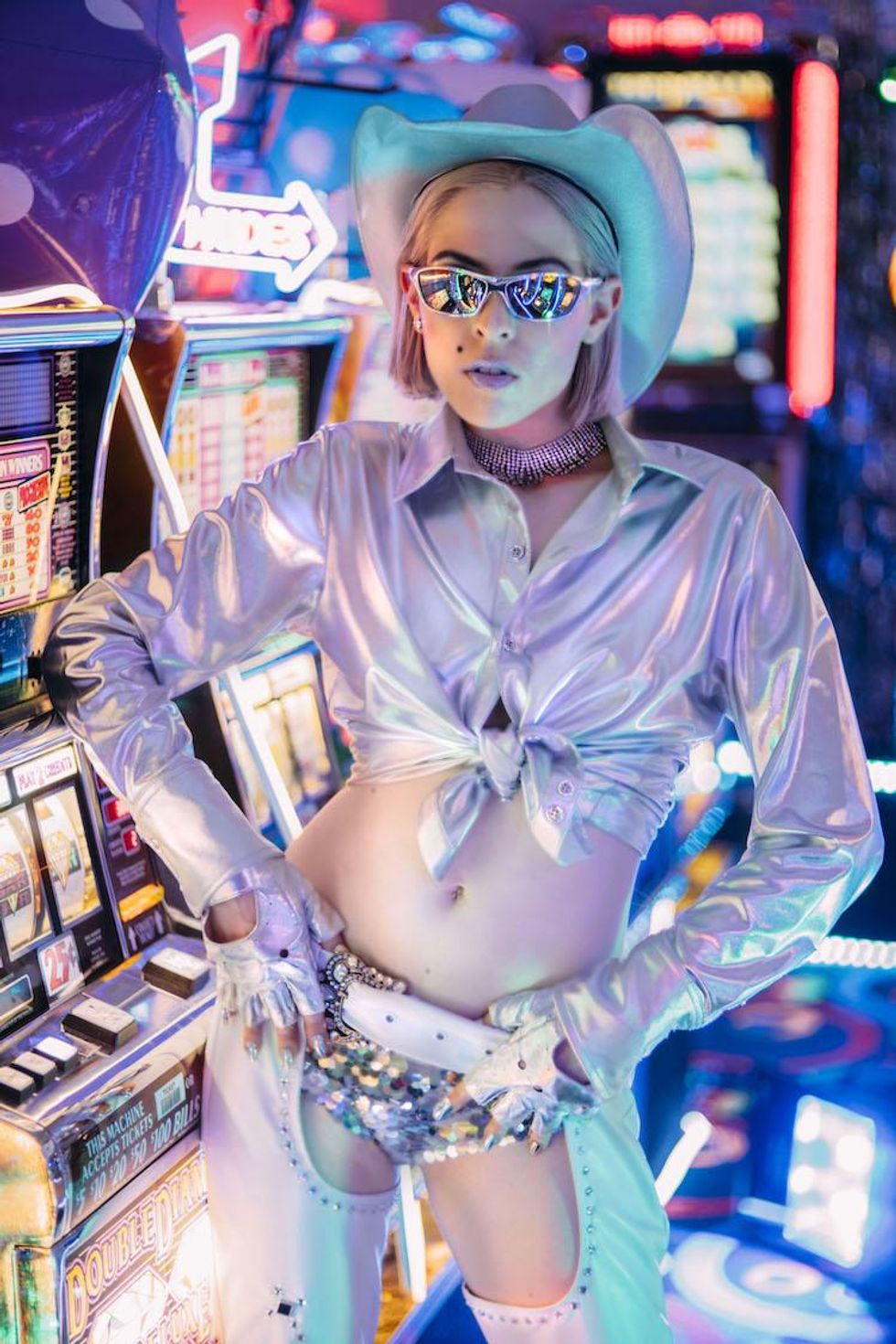
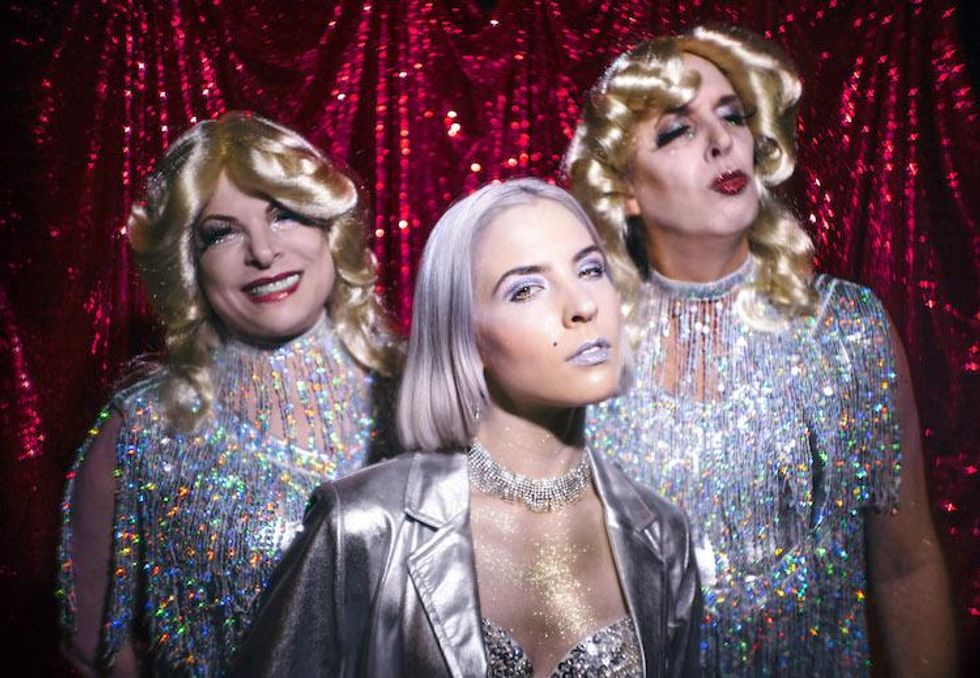
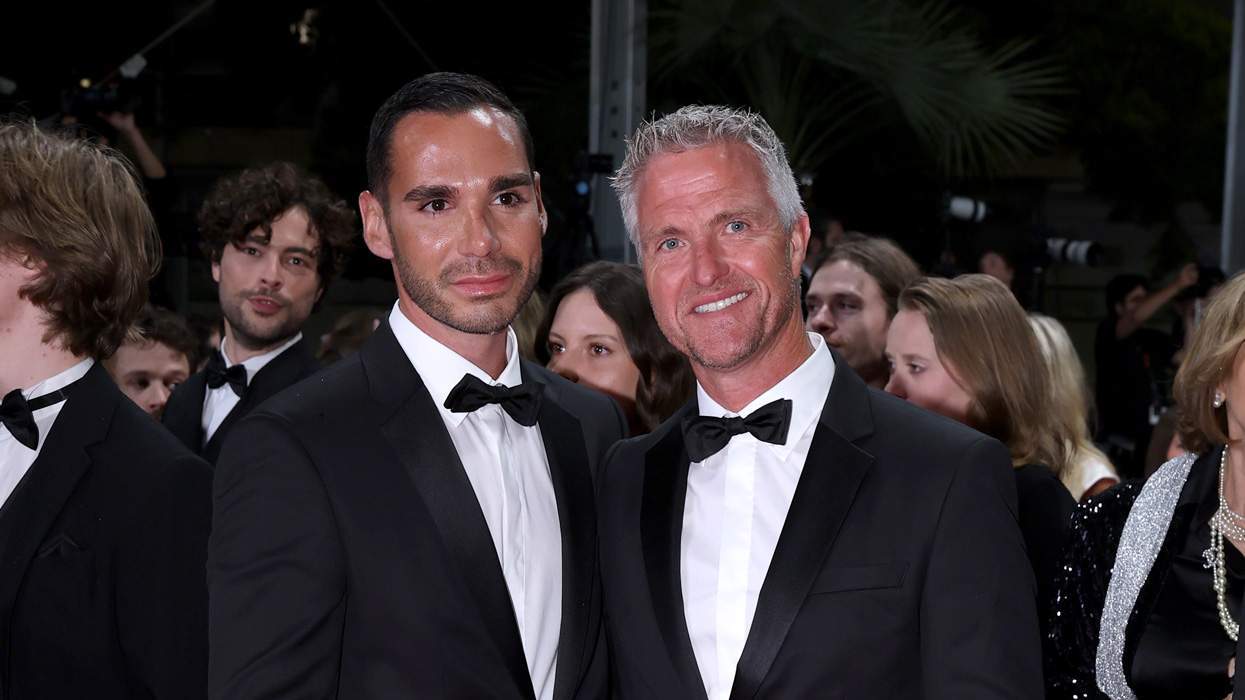


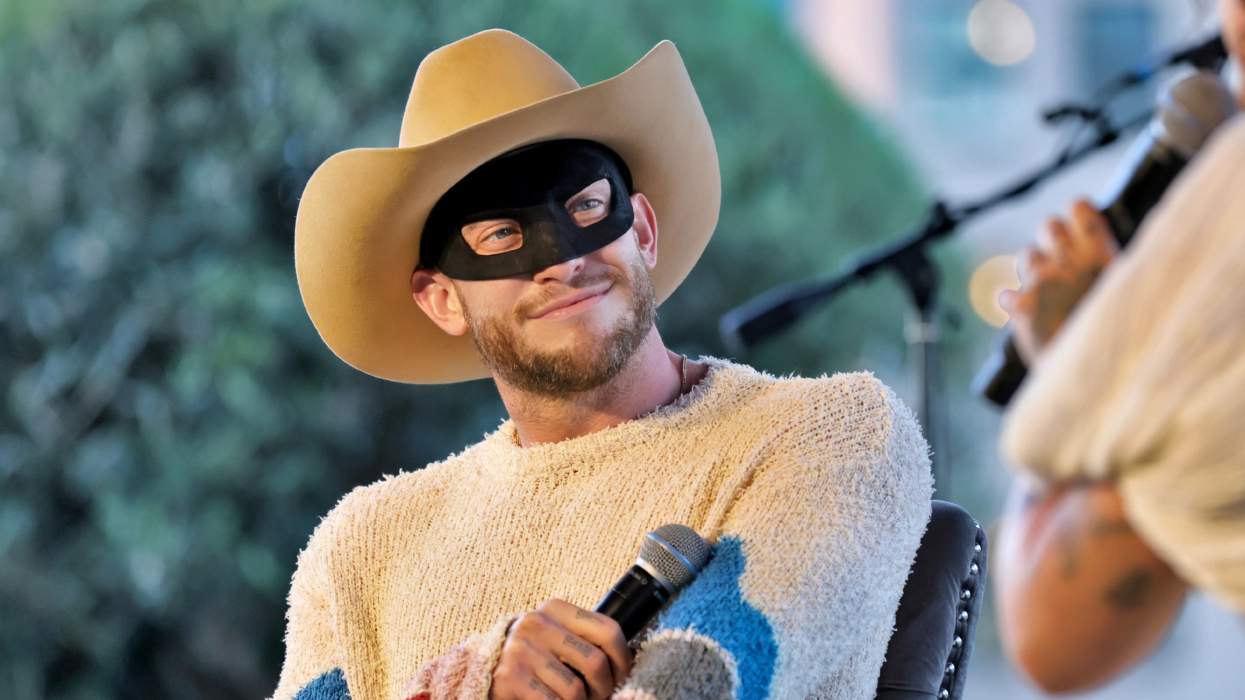
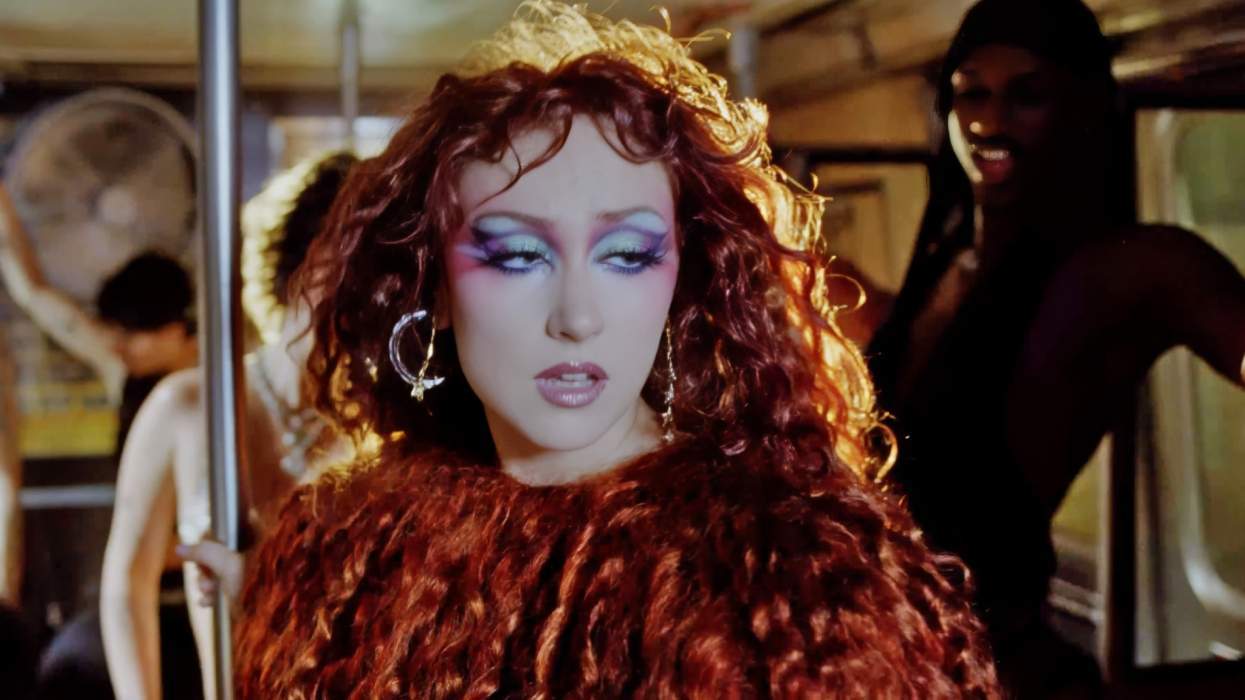
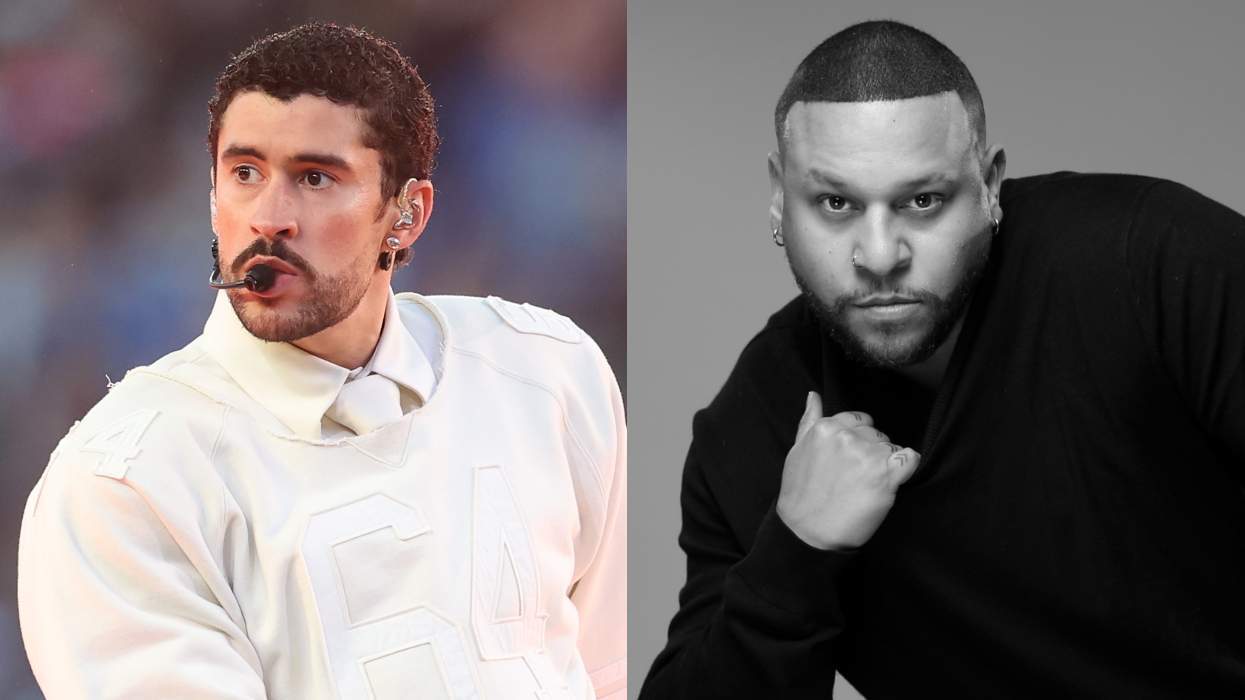










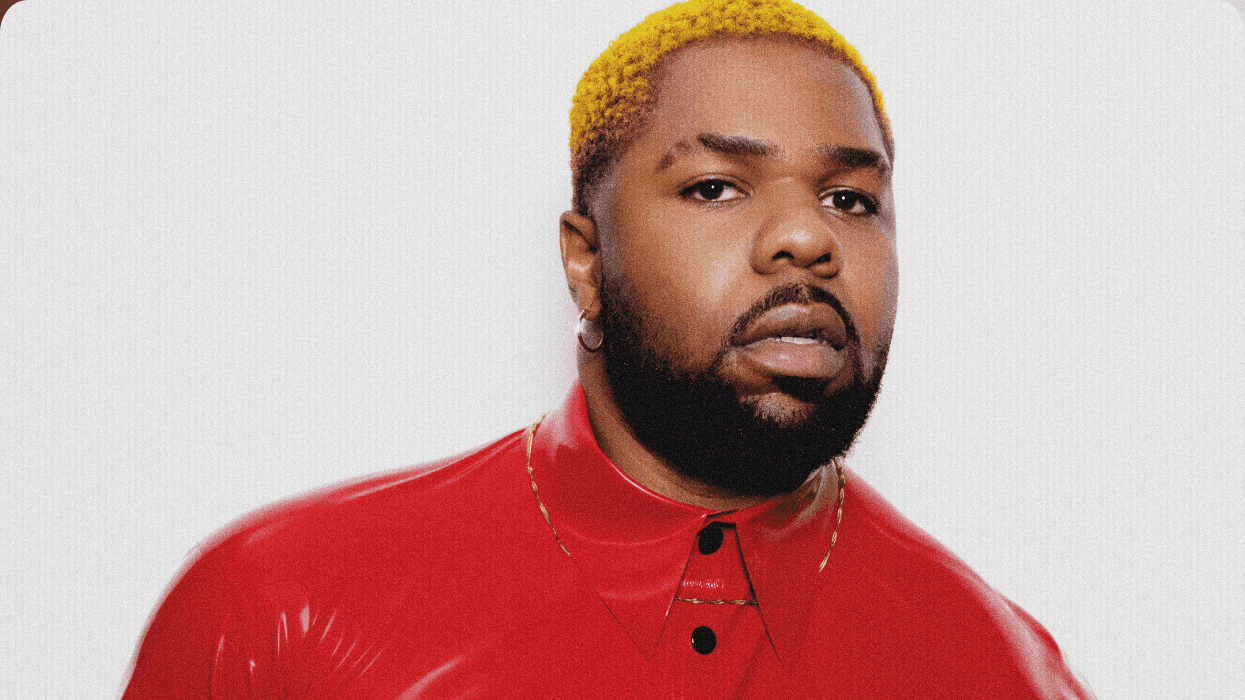
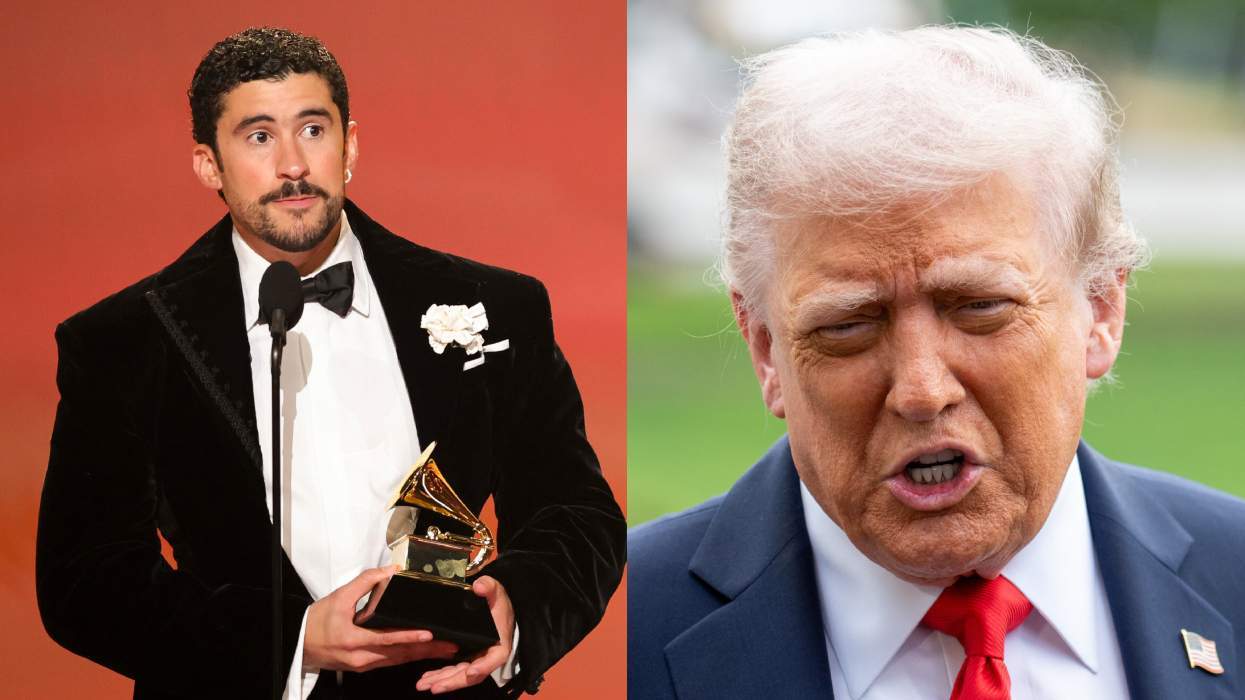

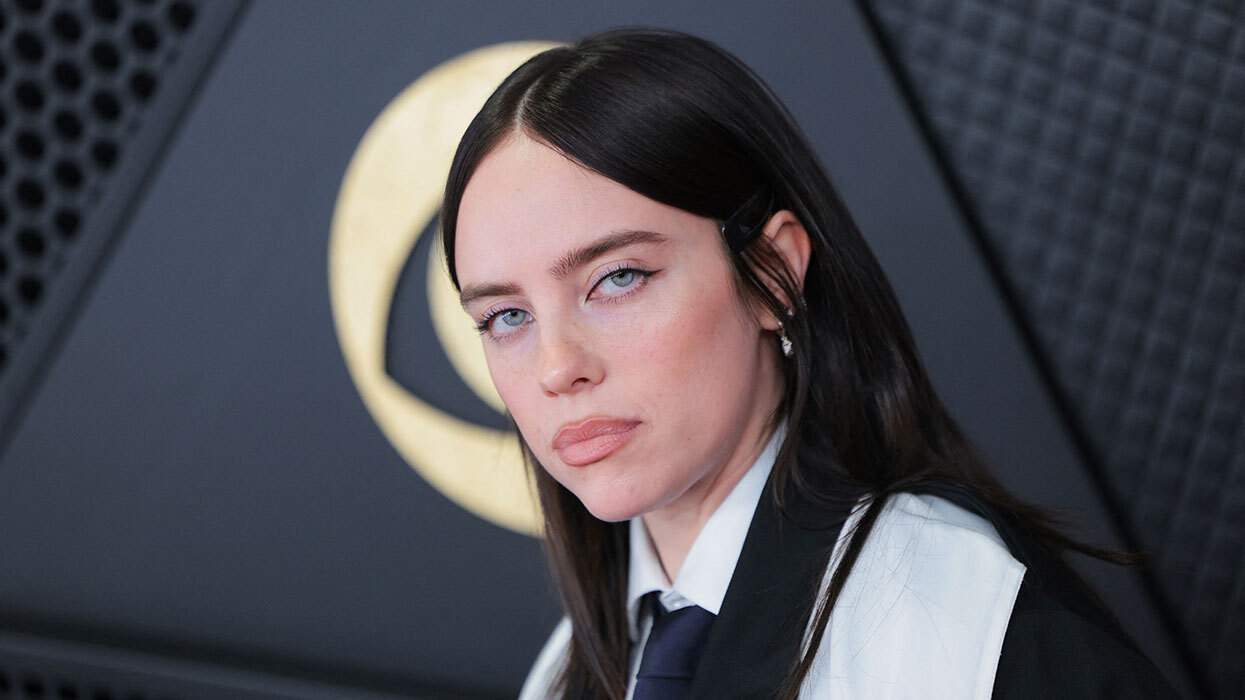
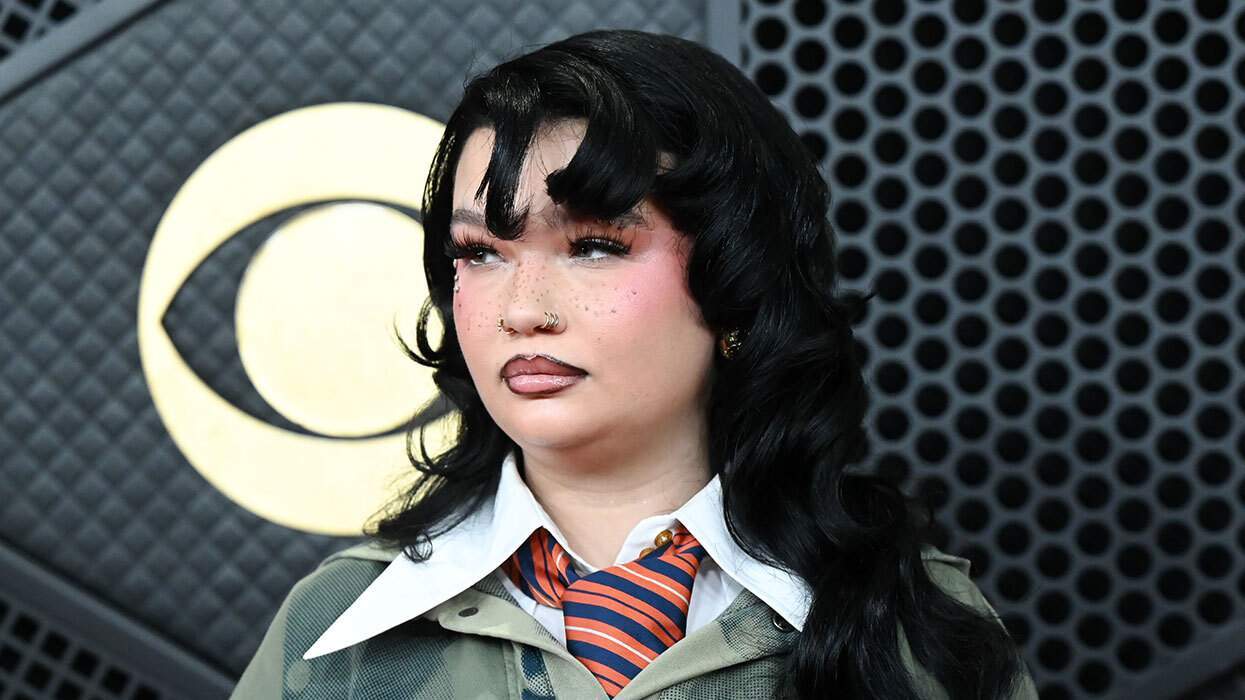
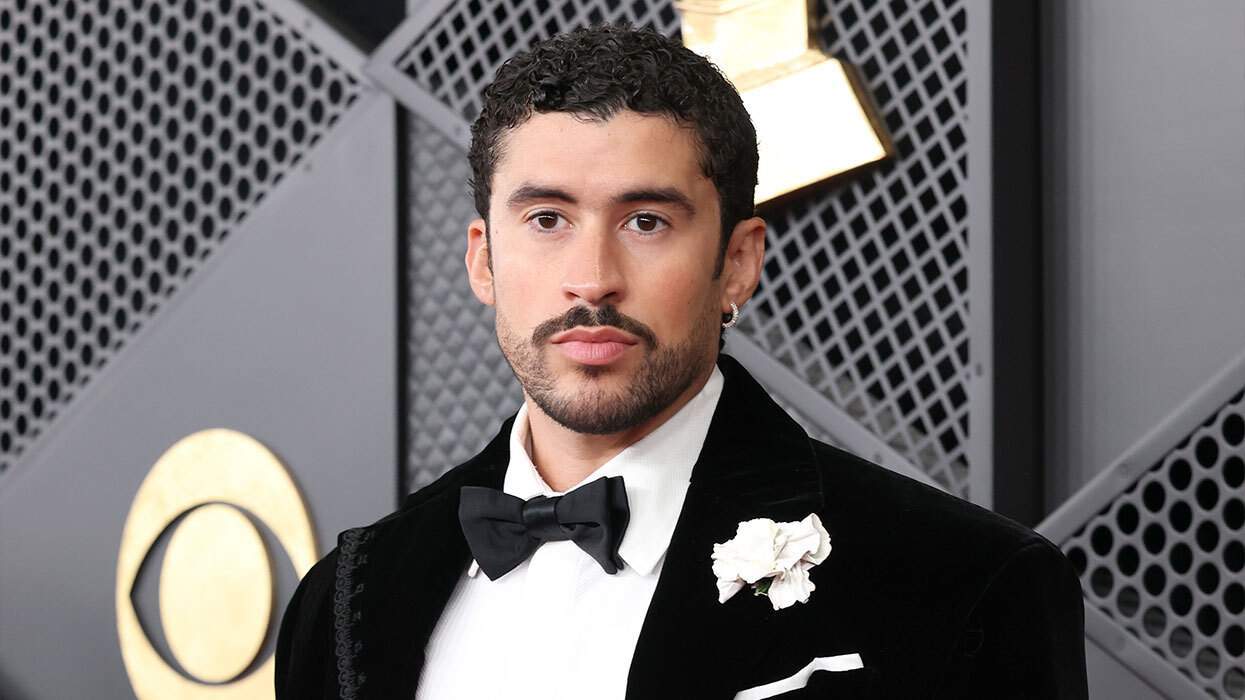
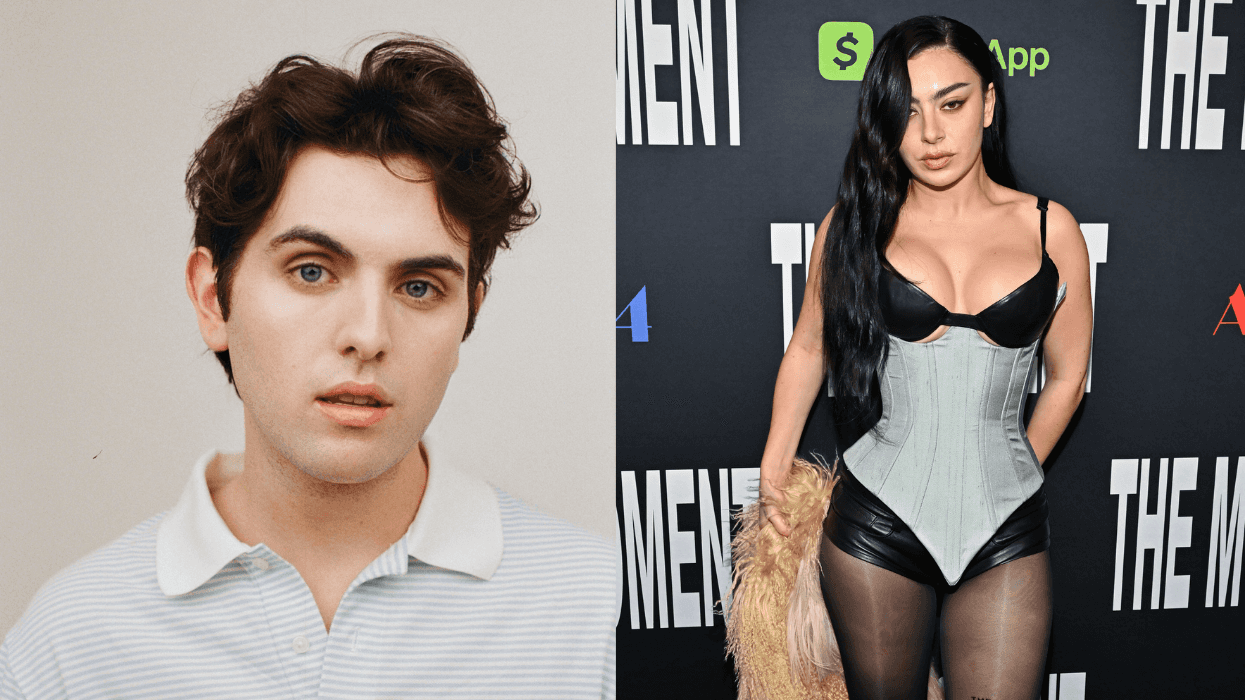
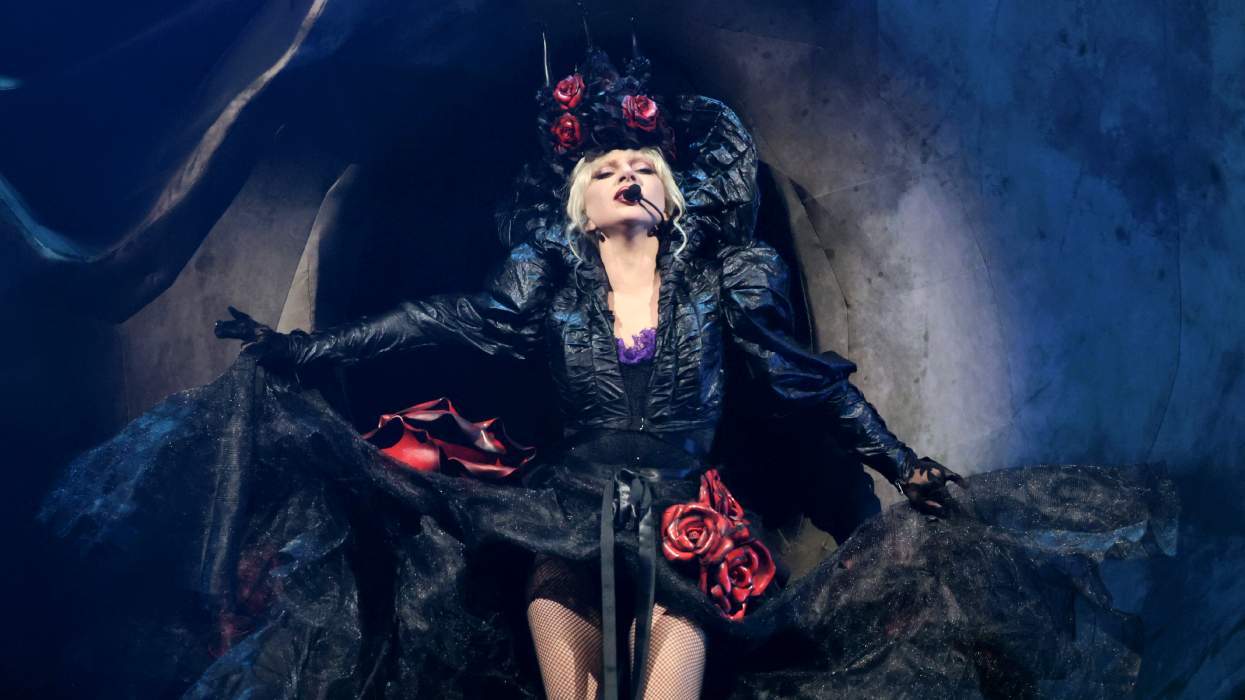
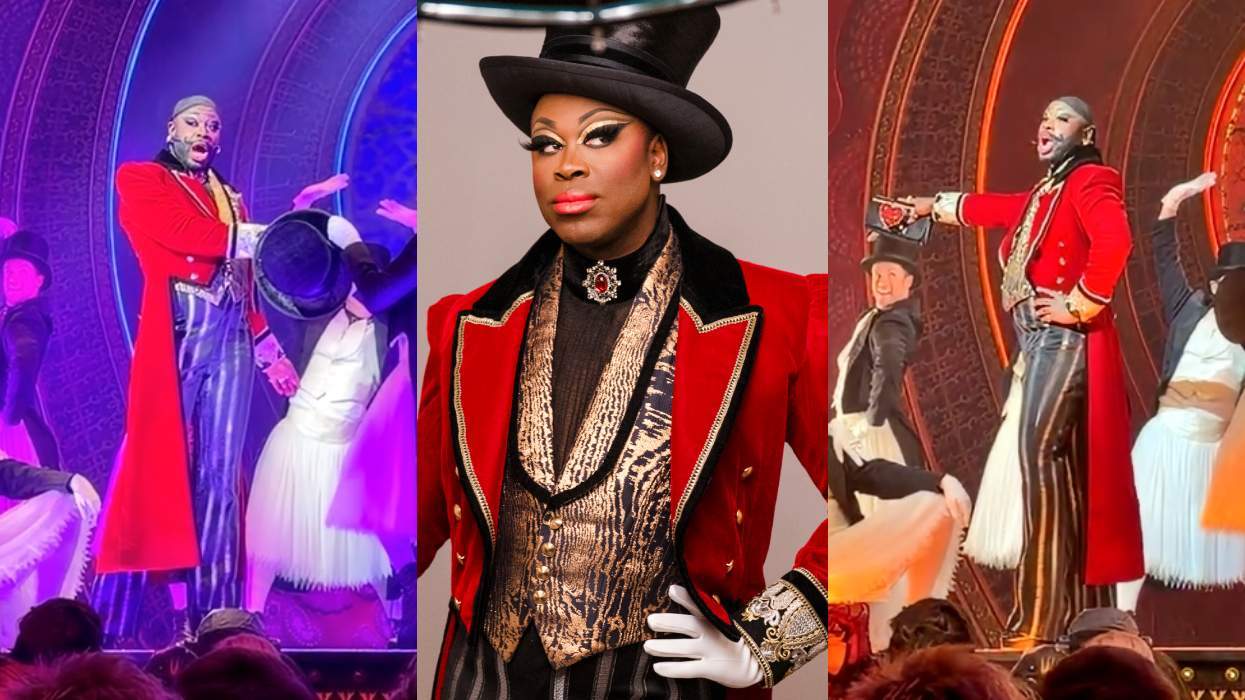
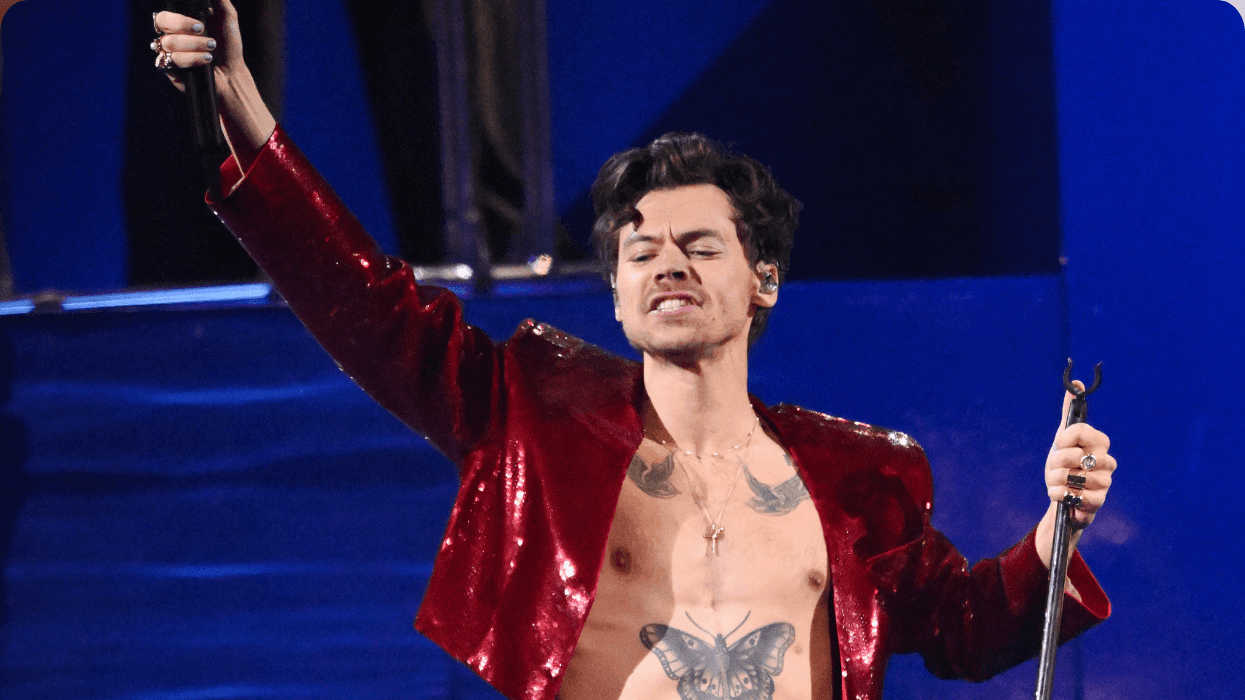
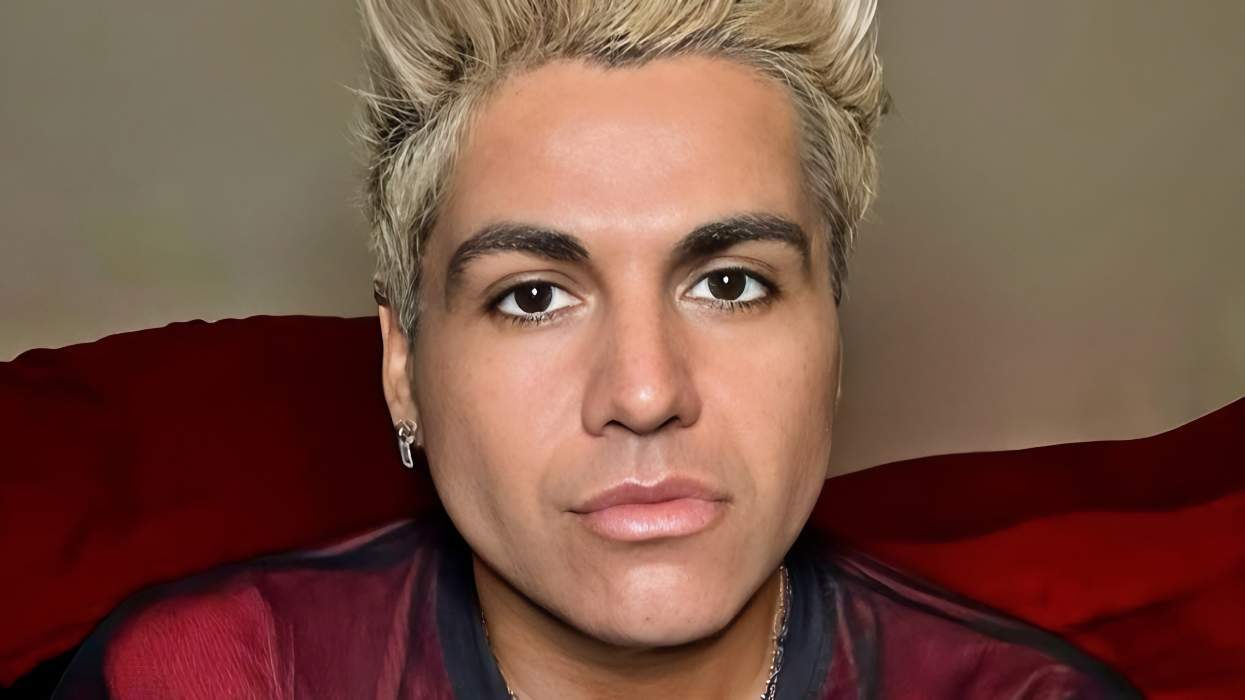
I watched the Kid Rock Turning Point USA halftime show so you don't have to
Opinion: "I have no problem with lip syncing, but you'd think the side that hates drag queens so much would have a little more shame about it," writes Ryan Adamczeski.